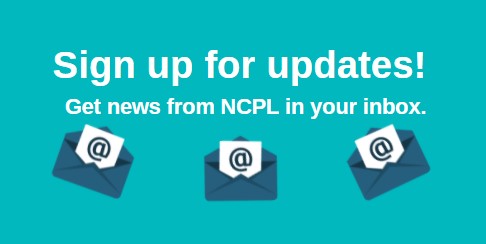1000 Books before kindergarten
On behalf of New Castle County Libraries, we invite you to participate in this free program which encourages you to read 1,000 books with your child before he or she begins kindergarten.
The concept is simple, but the rewards are priceless:
- Read a book (any book) to your newborn, infant, and/or toddler.
- The goal is to read 1000 books (yes, you can repeat books), before your child starts kindergarten.
- It’s fun and easy-not hard at all! If you read 1 book each night, you will have read 365 books in a year; 730 books in two years, and 1,095 books in three years!
- Don’t worry about what age your child/toddler starts the program-the idea is to read as often as you can to your child.

How to get started:
- Register your child at the Children’s Desk at the your nearby New Castle County Library.
- Receive a book bag with all the information.
- Start logging your books either on the paper log or on the app.
- To log books using the app, go to 1000booksbeforekindergarten.org, click the tab How It Works at the top and then find the link to the apps on the bottom right-side of the page.
- Bring your log to the library at each century milestone: 100 books, 200 books, 300 books, 400 books, 500 books, 600 books, 700 books, 800 books, 900 books and receive a surprise! When your child reaches 1000 books, he or she will receive a tote bag, book, certificate and more!
- Once a year your library may host a special party for children who have completed or who are currently participating in the 1000 Books Before Kindergarten program.
- Ask your librarian for details.
- Remember-just read with your child and ENJOY!
Websites to Explore:
- bedtimemath.org
- everychildreadytoread.org
- firstbook.org
- kids.nationalgeographic.com
- www2.readaloud.org/cslp
- readingrockets.org
- storynory.com
Tips to build literacy everyday:
- Shopping Lists
Write shopping lists and to-do lists while sitting next to your child. Provide paper and pencil so the child can make his or her own list. Take the list to the grocery store and use it as you shop to show the words on your list have meaning. - Make Words
Make magnetic letters available and play with them on a surface such as the refrigerator. Spell simple words for your child and have him or her repeat them. - Picture Menus
With your child, cut out pictures of food and paste them on sheets of paper to make a menu. You might make pages for breakfast, lunch, and dinner. Have your child “read” the menu. - Alphabet Books
Make a book that has a page for each letter of the alphabet. The child can draw or find a picture for each letter and paste it on the page. Write the letter on the page for the child or let him or her do it. Staple the pages together to make a book. Read the book from time to time. - Book Time
Read with your child every day. Start by setting aside 5 or 10 minutes each day. Then gradually increase the time to 30 minutes. Go to the library together. Choose books that go along with the seasons, family holidays, or subjects in which your child is interested. - Dramatizing
Help your child make cutouts of favorite storybook characters. Your child can use them to act out the story as you read and reread it. - Sharing
Share what you read with your child. Read aloud a portion of the newspaper or a book you are reading. Talk about why reading interests you.
Why Read 1000 Books?
Parents/caregivers can help children master the six early literacy skills that children need to know before they can learn to read:
- Print motivation
- Vocabulary
- Print Awareness
- Letter Knowledge
- Narrative Skills
- Sound Awareness
Who can participate in the program?
Any child from birth until he or she enters Kindergarten can participate.
How long will the program take?
The program is self-paced and will depend on how often you read together.
Do we have to read books from the library?
No! You can read all types of age appropriate books from home, school, bookstores, etc. Just remember to log them!
Can I count a book more than once?
You can! Record the book as many times as you read it!
May I register my child at more than one NCC library for the program?
Unfortunately, no. Each library maintains their own statistics and stock of incentives for the children participating at their library.


